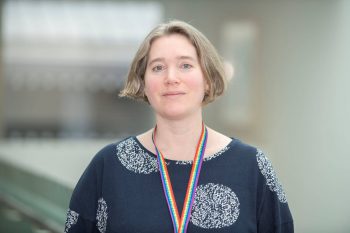- The University of Edinburgh – Data Science training programme for Health and Biosciences (ED-DaSH), which has been created through a partnership between The Data Lab and led by the University of Edinburgh, will support around 1000 learners over the next two years.
- The programme provides an inclusive open-access platform targeted at supporting those working in Health and Biosciences.
The Data Lab has joined forces with the University of Edinburgh to partner on a two-year programme for health and biosciences researchers in academia, industry and broader society to upskill and build their confidence when working with data.
Ed-DaSH, which is part of UKRI Innovation Scholars: Data Science Training in Health and Bioscience, will contribute to the growing demand for individuals with data science skills and extend it to those working in health and bioscience research. The programme entails 41 workshops that run into 2023 also cover data science skills to support data-intensive research and will empower learners to become trainers as their own expertise develops.
The launch of Ed-DaSH follows a survey from the Medical Research Council and Institute of Genetics and Cancer last year which found that only one in five (21%) of respondents rated their statistical skills as ‘good’ or ‘very good’, and just under two thirds (64%) felt there was a need for formal training. Launched in September this year, the programme has already seen 90 people complete the workshops.
Suitable for individuals at any stage of their career and irrespective of their role, participants who progress through Ed-DaSH will learn how to manage, analyse, store and share data, helping to develop a growing cohort of confident practitioners across the health and bioscience sectors. It is hoped that the skills gained from this training will build a workforce better equipped for data-driven, health-related research, which in turn will accelerate advances in healthcare.
Alison Meynert, Principal Investigator, Ed-DaSH commented: “It is often assumed that those working in health and biosciences will automatically understand how to make sense of and utilise data in their work. However, as we have seen from research, that’s not always the case. The programme enables learners to consider how they can use tools, like coding, to prove their hypotheses and may also allow participants to enhance, and potentially, extend new avenues of research. Since we launched the programme earlier this year, we have received extremely positive feedback, with participants engaged with the process of continuous improvement.”
Brian Hills, Deputy CEO, The Data Lab, said: “Data is ubiquitous. However, being able to make sense of it and apply it correctly can often be a hurdle for individuals, as is the case for many involved in the health and biosciences sectors. The pandemic has undoubtedly driven individuals and organisation to review their data skills and consider how they can better utilise data to benefit their work. Pioneering collaborations are part of The Data Lab’s DNA and this partnership with the University of Edinburgh and the Ed-DaSH programme will bring significant long-term skills development that can be applied directly to the challenges within the health and biosciences community.”
Ed-DaSH is structured as a repeating series of workshops which has been made possible due to funding provided by UKRI MRC Innovation Scholars initiative. The workshops have been designed for remote delivery and are self-contained allowing individuals to ‘pick and mix’ and structure their learning to match their needs and availability over the duration of the programme. Importantly, the workshops are taught by practitioners who are involved in utilising data as part of their career. Programme sponsors include MRC Human Genetics Unit, University of Edinburgh School of Biological Sciences, supercomputing centre EPCC and Edinburgh Genomics.
The next workshop series will commence on 17th January 2022. For further information about the programme, to join a future workshop, or become a trainer please visit https://edcarp.github.io/Ed-DaSH/workshops.html.

